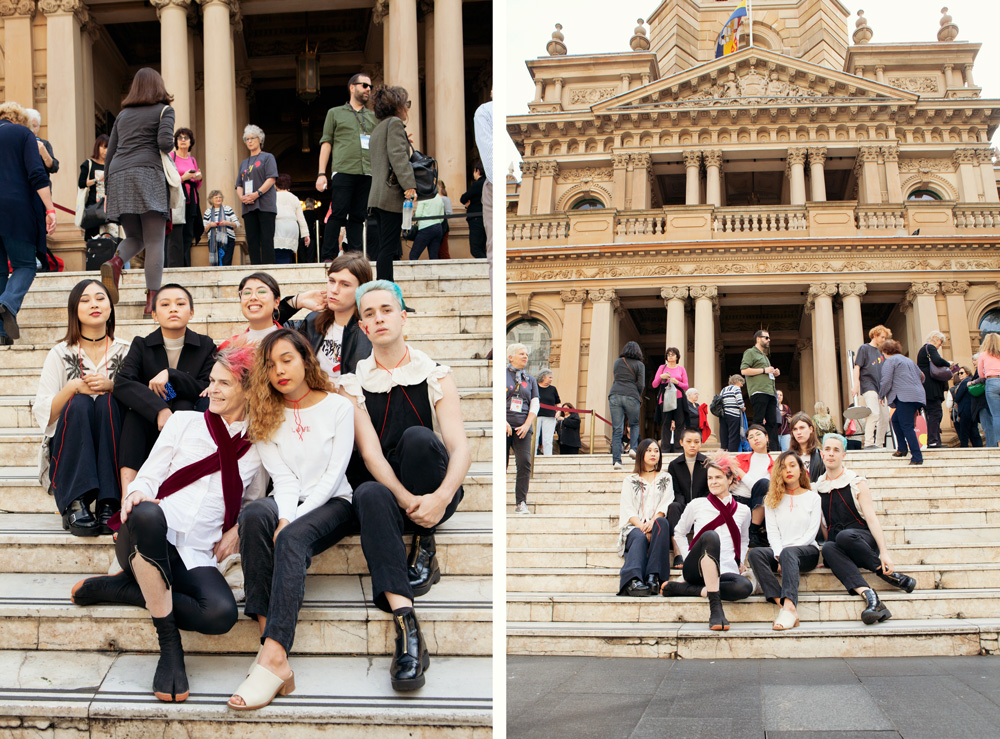Fab Protest Against Lack Of Diversity At Fashion Week
By Samuel Leighton-Dore
Jonno Révanche is a Sydney-based artist, writer, and photographer who isn’t afraid to turn a disgruntled tweet into a real-life protest. Left feeling appalled following the blatant white/cis-washing of Mercedes Benz Fashion Week Australia, which culminated in a super embarrassing all-white runway to Beyonce’s Formation, Jonno this week decided to rally the troops and make a statement of solidarity.
And what better way to do so than organise a last-minute inclusive fashion stance in Sydney’s CBD?
Heaps Gay tagged along with our resident photographer Bradley Tennant to capture the event and learn more about those involved and the motivation behind it.
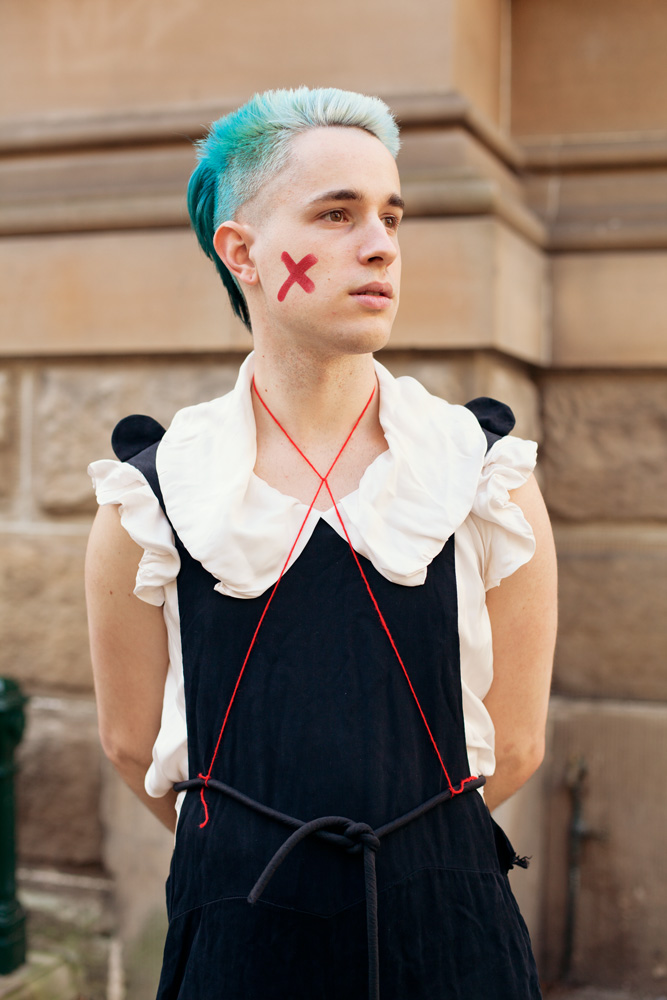
What inspired you to organise this event?
I had been listening to secondhand stories of friends of mine who had been invited to castings, who were trans or gender non-conforming or non-binary, and basically getting treated like a joke when they rocked up… being humiliated, degraded, even ignored. This may be common for models of all kinds, but there’s another layer to it when you already feel like your body is a site of mitigation for the cis gaze, as something that’s only valuable if it’s getting commodified. There’s this feeling of reaching your hand out to someone while they’re down and then laughing at them and spitting in their face when they reach back out for that support. I’ve experienced this as someone who is gender non-conforming and working in fashion, even though I benefit from whiteness and am of course implicit in it.
I tweeted about maybe doing a protest runway show in response and it was one of my most liked tweets ever, which really surprised me. A few hours after that I read that Bella Hadid had walked a runway show alongside a totally white cast while Formation by Beyonce played. It’s not Bella’s fault and I’m just referring to it in this sense because I don’t care for remembering the names of the designers, but it was totally trash. It’s honestly embarrassing that this is happening in 2016 and that these themes and ideas meant for black empowerment are getting co-opted so blatantly.
I can’t imagine how it would feel to be in that crowd as a black person seeing that go down, but I suppose you wouldn’t have been invited in the first place. I talked to some of my friends who had experienced racism in the industry and they all seemed really excited to get involved and encouraged me to go forward with it. People have been saying things to me like “what did you expect? Australian fashion has always been like this,” and I honestly hate that response. This isn’t aimed towards anyone but it always comes from those progressives who don’t have much to lose already. Your apathy is what continues to fuel these things. I understand that it’s easy to feel this way, but it’s not what the most vulnerable people need.
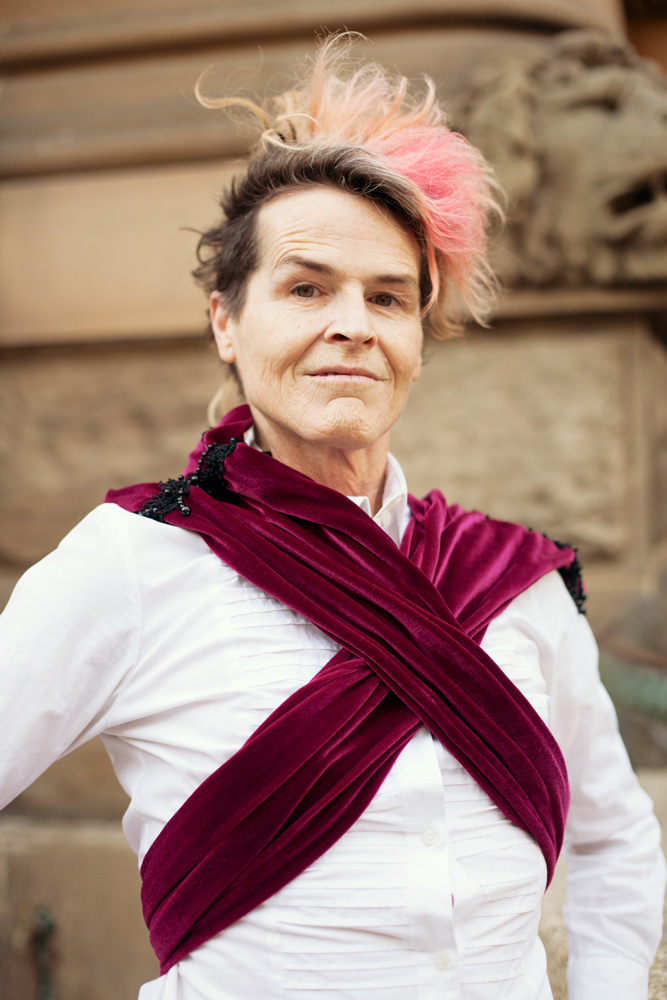
Do you think the lack of diversity in the Australian fashion industry is more prominent than overseas?
It would seem that way but I’m also hesitant to make this just a diversity issue. Is transphobia and racism and queerphobia underpinning the imagery? Is racism fueling this industry? Are we building a culture that actively delegitimises certain people? Diversity is just a starting point. I’ve seen really amazing models of fashion shows working both in Australia and overseas where thought is put into the political nature of runway and how they can challenge overtly oppressive messages. Fashion may seem frivolous but it’s the result of tireless labour by inspired, creative people. Fashion has so much potential for motivating people. We need to do justice to this and prove how incredible clothes can be, that there’s radical potential in the way we negotiate our sartorial choices and their meanings.
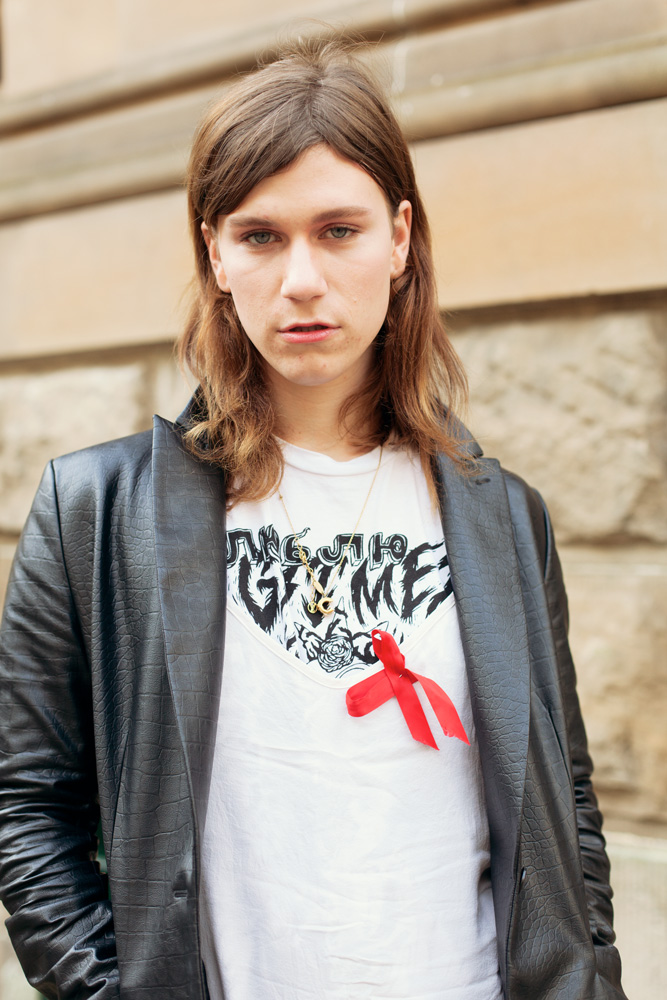
How does tokenism come into play here? Is it a good or bad thing?
It’s clear that a lot of coverage of MFBWA was focused on the POC present, and it’s good that they’re getting a spotlight and that people are amplifying their voices, that’s a really good start, but it’s a bit of a facade for the way things still are in fashion. Tokenism is illusory, it’s a tactic to distract from the systems underpinning oppression, it says to us: “equality has been achieved.” even though 90% of the people in the room are still only beautiful by western standards, are “able-bodied”, pale, cisgender and thin. It promises us a lie, that to be considered successful, valuable and beautiful in this context is achievable for everyone else of that demographic, and we all know there isn’t much truth to that.
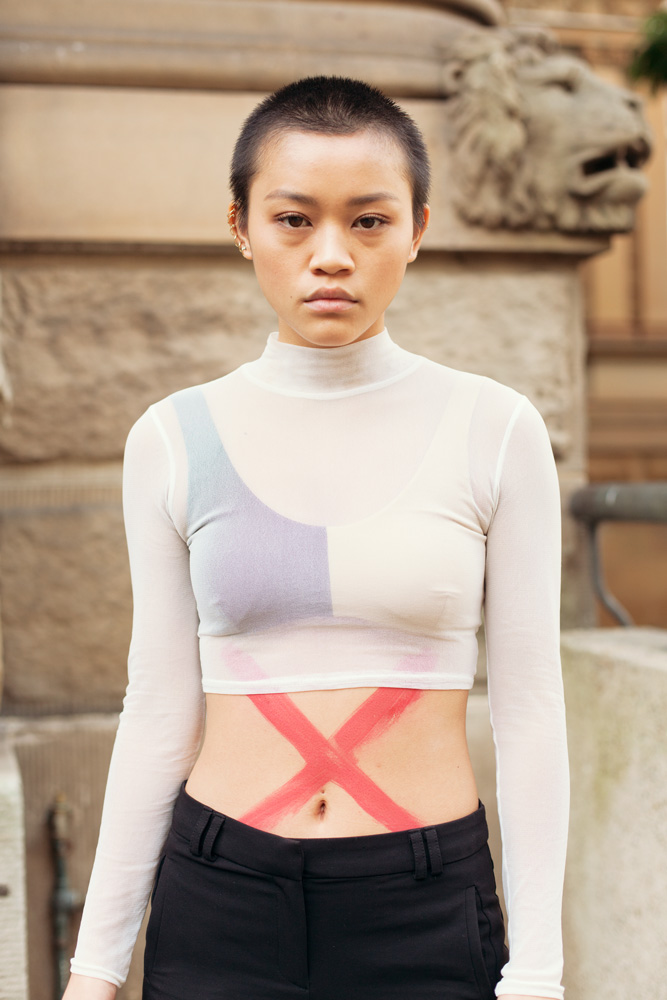
The financial struggles being faced by local designers have been well documented in the media recently. Do you think Australian designers are simply too scared to take a risk on diverse casting? Or is there more too it than that?
It’s possible but it’s also been proven that diversity is exciting for viewers. It doesn’t make sense for people to use that argument. Australia is one of the most “multi-cultural” places on the planet, there actually are a lot of benefits to showing that side of our country, but I think modelling agencies, designers, editors are more convinced with maintaining the power and cache that whiteness, and cis-ness offers them in our culture. It’s just ridiculous. If you’re sourcing your self worth from those precepts, you’re probably not that impressive in any other way. – Fashion has always been a strong point of leverage for discussions on diversity and healthy body-image.
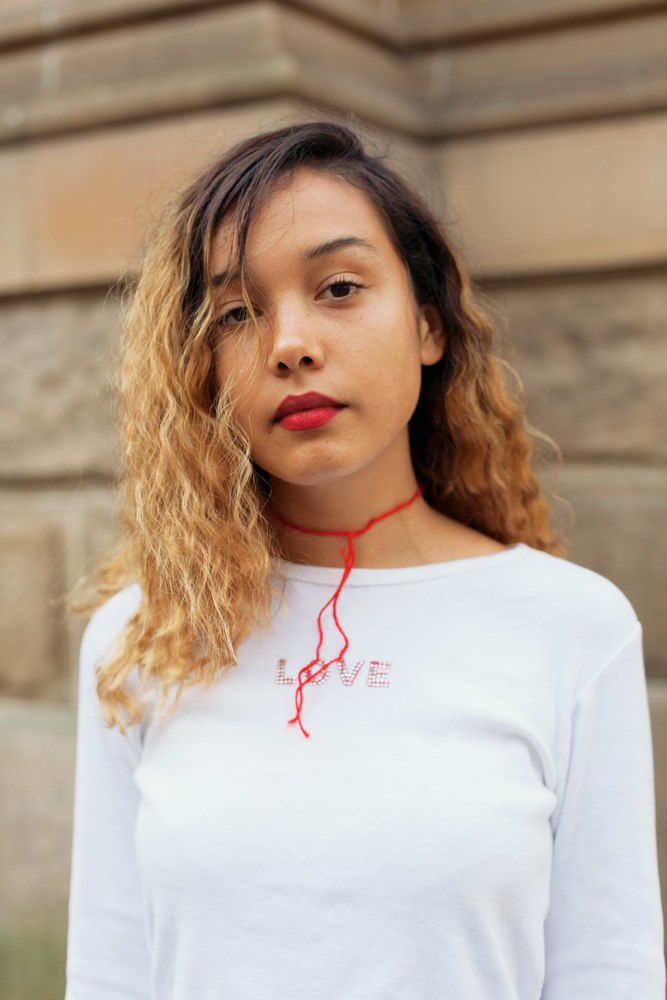
Do you think it’s actually possible to achieve a balanced and socially reflective foundation in the fashion industry?
In my mind I see fashion as just…. clothes, the people behind them, the people that wear them. Those things can exist on their own, they aren’t inherently tied to unhealthy or negative ideals, so I suppose in that way there is hope for the culture around it to change. When you look back at history you can see that our standards of beauty have changed dramatically based on the social and political landscapes of the time. I don’t know much about art eras but when you look at a baroque painting, or something renaissance, the kind of women depicted and illustrated as beautiful are so different. Now let’s start valuing all different bodies and experiences – a body type shouldn’t be a trend.
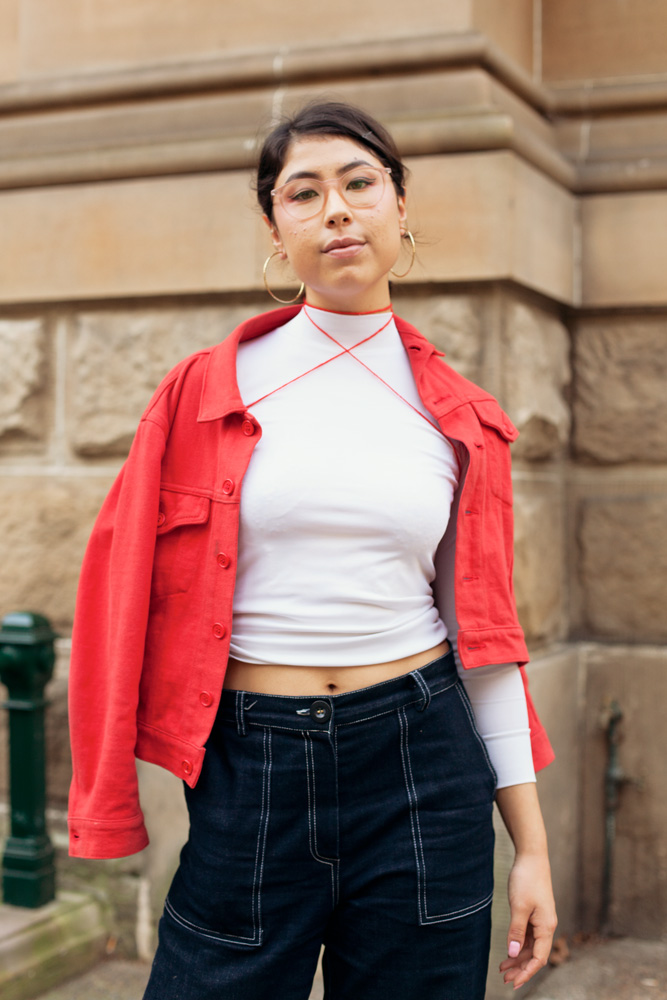
What do you hope the show today will achieve?
I have a lot of expectations for it but honestly I just want it to be fun, I want it to be seen, I want it to cause a little bit of disruption. Things won’t change if we sit still and act like we’re above it all. I keep getting freaked out by the prospect of doing this and then I remember Brene Brown standing next to the words “we can do hard things.” I feel like if I classified this whole thing as a performative art piece I’d give it that title. We also considered “Anything but this.” Lol.
But I guess the name doesn’t totally matter.


